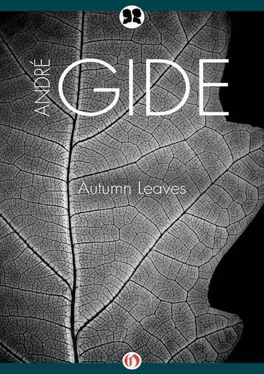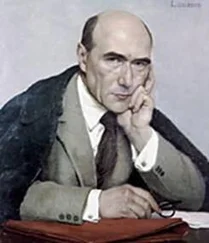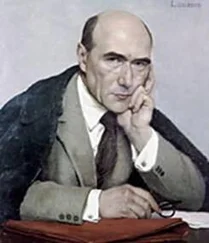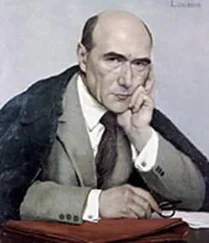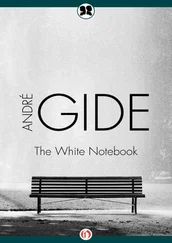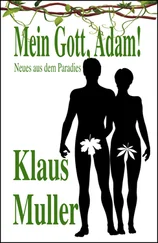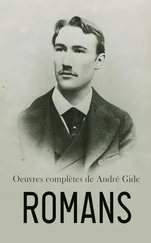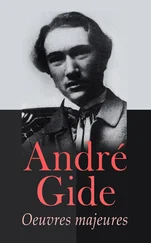This inspired poet he paints (in that second picture the Louvre owns to-day) is Virgil, we may think, judging by the Iliad and the Odyssey, books that figure in the picture near the god. As Virgil imitates Homer, Poussin imitates Raphael. For his tradition forms, as though outside of time, a continuity so homogeneous that he does not hesitate to locate, in his Orpheus and Eurydice, the drama that separates the two lovers in the Greek fable, in a Roman setting where we are astounded to find the Castle of Saint-Angelus. Yes, Poussin imitates, and La Fontaine, and Racine, and Molière; and in our day, Péguy, Claudel and Valéry. And it is well to say that at a time when nothing discredits an artist more than his resemblances. It is commonly judged today that an artist has all the more value if he has risen up, invented himself out of whole cloth, and if one can no longer recognize kinships in him. But then he is in danger of rendering obeisance to the times, and in that apparent and forced originality, to yield to the anarchistic taste of the day. As far as I am concerned, I think the courageous artist is the one who bucks the current, whether it tries to carry him to the right or the left. It was by retaining and restoring tradition, when it was slipping away, that Poussin was able to seem to Delacroix healthily revolutionary. Yet his originality remains profound, but is revealed only after a thorough examination. Proud in the midst of his epoch, modest as regards the past, he wishes to be an important mile-post in a glorious culture. To attain it, he will rely only on himself, and expect it only from himself; but he will know how “to neglect nothing.” It is to his own “generosity” alone that he appeals (I am quoting his own words) to maintain himself from then on in his “assured and constant position.”
Félibien congratulated France for having been able to produce “so rare a man” for her own glorification, and we can only profit by putting ourselves in his school in our turn.
I take Poussin for myself? — No, not at all; it is he who takes me. It is for him to speak. I remain silent.

1Born in 1596.
2Born in 1606.
3Collection of the Marchoness of Bute at Luton (Scotland).
4Louvre.
5“Rittrato originale simigliantissimo … fatto nello specchio di propria mano circa l’anno 1630, nella convalescenza della sua grave malattia.…” The rubric on the portrait tells us.
6Louis Hourticq, Poussin’s Youth, p. 45.
1 Essay on Poussin, in the Moniteur , June-July 1853.
1With the sole exception, I believe, of the Christ wept over by the Holy Women (not the canvass in the Pinakothek in Munich, unfortunately conventional, but the surprising picture little known, in Dublin, the only one of its kind; probably), of deep feeling and truly religious.
1That the Museum of Hanover, I believe, lent to Paris at the time of the great exposition, and of which there is, at Dulwich, either a duplicate or a copy.
I CONSIDER that the best claim to reputation of the group formed by Breton, Aragon and Soupault, is their having recognized and proclaimed the literary and ultra-literary importance of the astonishing Lautréamont. Nothing could flatter me more than the request they made me to write a preface for the new edition of Chants de Maldoror they are preparing. If I declined that honor, it was because I considered it impertinent to explain, even to present, that work to a public with which it had nothing to do, and to bring up a stool to reach it, when it could only be obtained by a bound.
After all, it does not seem to me that Lautréamont was entirely responsible; but his strange and unprecedented power in our literature, comes, as it happens, from his knowing how to protect himself and to maintain within him that state of irresponsibility. His influence in the nineteenth century was negligible, but he is, with Rimbaud, more than Rimbaud, perhaps, the master of the sluice gates for the literature of to-morrow.
I RECALL the time already far distant (it must have been in 1891) when Paul Valéry, whom I had the pleasure of coming across once more at Montpellier, said to me: “In fifty years statues will be raised to him.” It was of Rimbaud he was speaking.
Statues in public places seem to me to be merited only by those who render to the public services of a nature that the public can easily appreciate: a Pasteur, an Edison, a Curie. But doubtless Valéry, when he spoke of “statues,” was thinking of monuments like the one, entirely immaterial, in which you propose to group our homages in your magazine. Never mind! That prediction seems risky to me. Not that my admiration for Rimbaud was not, even at that time, most lively; but the devotion I offered him remained of a secret nature, and I could imagine only with difficulty one ever rallying around him a number of minds of very diverse formation and tendencies. The idea of esoterism and the happy few is one of those to which the issue has given the most unexpected denials. Already for Stendhal and Baudelaire, as a little later for Emily Brontë, Mallarmé, Verlaine and Rimbaud, as to-day for Joyce, Melville, Proust or Péguy, the happy few of yesterday, are called, from now on, the multitude. That is what tempts us to think that real genius always finds its recompense; although the clear echo of its voice is sometimes awaited for a long time, and it is the case with certain poets as with those distant stars whose light reaches us only a long time after the star is dead.…
There is something else: Rimbaud appeared to me like a demoniacal poet, a poet “accursed” above everyone and liking to be so. The burning alcohol, the “famous swallow of poison,” he invites us to drink, and that I have tasted with delectation, more heady, more exciting than any wine, could suit, I thought, only the strong. Into what strange damnation was he not leading all the others? I needed only the high authority of Claudel to assure me. Not so much on account of the saying: omnia munda mundis, to the pure all things are pure, but rather because of the word of Scripture: Et violenti rapiunt illud … although I don’t know any too well whether I should not apply it to Claudel himself rather than to Rimbaud: “And the forceful take possession of it.…” But the Catholic who takes possession of Rimbaud, with his aggravated individualism, his recalcitrance, his revolts, strongly recall to me the Spartan, whose prowess was related to us in school: he has to bear the bites of the stolen fox that he hugs to him under his gown. Rimbaud’s are cruel, almost as much so as his kisses.
And this fox, in its turn, recalls to me Faust’s Pudel: behold him increasing, becoming enormous! In the infernal shades, his eyes gleam, throw out disturbing sparks. Rimbaud does not allow himself to be put on the leash easily, even by a Claudel. The yappings of this fox partake of the roars of the wild beast. He is frightening, even when tamed; and many of those who admit him to-day would not have received him into their privacy without his mahout to guarantee to us that his intentions are, in the last analysis, praiseworthy. One might have been permitted to doubt it.
But it matters very little what such and such a person wishes to see in Rimbaud. Is it not the property of a true poetic genius to answer widely divergent questions, to lend himself to many a contradictory interpretation, to encourage disagreement in respect to him, to offer more than appears at first glance, with the result that, with him one can not stop anywhere? There is what he wished to say, what one thinks he wanted to say, but the most important, doubtless, remains what he said without wishing to and in spite of himself.
Читать дальше
